| Home | About | Archives | RSS Feed |

@theMarket: No More Than 5 Percent
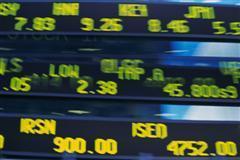 Patience is a virtue that many investors find difficult to master, present company included. However, this time it appears to have paid off. The tight trading range that held the market captive over the last few weeks has finally been broken. Unfortunately it was to the downside.
Patience is a virtue that many investors find difficult to master, present company included. However, this time it appears to have paid off. The tight trading range that held the market captive over the last few weeks has finally been broken. Unfortunately it was to the downside.
This week, especially Thursday, a major sell-off occurred across all asset classes — equities, gold, silver, crude — with economically sensitive stocks leading the decline. It is a key indicator, for me and suggests that the flush-out, selling climax or whatever you want to call it is beginning.
The ostensible reasons for this rout were numerous: a sudden and surprising trade deficit in, of all places, China, a downgrading of Spanish debt by another credit agency, a jump in U.S. jobless claims and of course, some further bad news from the Middle East. This time the concern is riots in the eastern part of Saudi Arabia.
On Friday, all these troubles took a back seat to a devastating earthquake/tsunami that struck Japan spawning another tsunami that raced across the Pacific toward Hawaii and the West Coast of the U.S. mainland. Suffice it to say that the markets remain volatile. I'm hoping for a conclusion sometime this coming week and if not, we will all need to practice the "P" word.
Investors were jumping into U.S. Treasuries and the U.S. dollar in a bid for safety. At the same time, Bill Gross, the head of Pimco, the largest bond house in the world, said he has sold all but the very shortest of his Treasury bond holdings in his largest fund. In explaining the sale, he said:
"When a trillion and a half dollars worth of annualized purchasing power disappears," Gross said, referring to the end of the Fed's QE 2 operations, "I simply question as to who will buy them and at what yield."
When Bill speaks, the bond world listens and so should you.
However, this is not the time to panic. Although it may well feel like an irresponsible action to take, I say gird your loins, start purchasing equities and if you are still in Treasuries (after my numerous pleas to sell), this is an opportune time to unload.
"How deep of a pullback are you looking for?" asked a reader from Great Barrington on Friday.
Well let's look at the technicals.
The S&P 500 Index has a lot of support around 1,265-1,270, failing that, the next level would be 1,225. So from around1, 300, we are talking about no more than a 5 percent correction. As I have often said, equity investors should expect corrections of up to 10 percent at regular intervals in the stock market. It is simply the cost of doing business and if you can't take that kind of volatility you don't belong in the stock markets, period.
Silver, on the other hand, has hit my price target of $36-$37 an ounce. Since I'm fairly disciplined when it come to trading commodities, I have cashed in about half of my chips, although I remain long gold for now. It just seems to me that a 300 percent gain in silver calls for some profit taking. I hope you agree.
That does not mean I will abandon the metal entirely. I believe silver will consolidate as metals often do for several weeks or possibly months before moving higher. In the long term, I believe silver has further upside as do most metals. For longer-term investors I suggest you take your lumps in the short-term. As for me, I will wait until it pulls back to a more reasonable level before becoming interested once again.
Oil, however, as I have reiterated, has more than reached my price target of $100 a barrel. My strategy for investors in that area had been to first reduce exposure to energy stocks, followed by a reduction in oil itself. It doesn't bother me that the talking heads are betting that oil goes higher. If they want to risk their money on an extra $10 worth of upside, let them. I think the easy money has been made (from $35/bbl. to $100 a barrel) and that's what I try to achieve — low risk, high return trades.
Hang in there readers, there are better days ahead.
Bill Schmick is an independent investor with Berkshire Money Management. (See "About" for more information.) None of the information presented in any of these articles is intended to be and should not be construed as an endorsement of BMM or a solicitation to become a client of BMM. The reader should not assume that any strategies, or specific investments discussed are employed, bought, sold or held by BMM. Direct your inquiries to Bill at 1-888-232-6072 (toll free) or e-mail him at wschmick@fairpoint.net. Visit www.afewdollarsmore.com for more of Bill's insights.
| Tags: metals, commodities, disasters |
@theMarket: Commodities and Emerging Markets
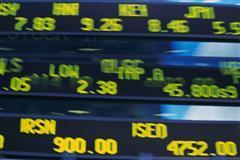 It has been a given that where commodities go, so go emerging markets; however, that correlation seems to have broken down over the last few months. While commodities, both precious and base, have continued to rise, emerging markets have underperformed since November. What gives?
It has been a given that where commodities go, so go emerging markets; however, that correlation seems to have broken down over the last few months. While commodities, both precious and base, have continued to rise, emerging markets have underperformed since November. What gives?
For several years the basic investment thesis is that emerging markets are economic juggernauts with an insatiable demand for the world's natural resources. Their factories devour every form of commodity and transform them into the world’s textiles, steel, clothes, cars, toys, electronics and scores of other exports.
But sometimes you can come up against too much of a good thing. That is what is happening to several of the larger emerging market countries such as China, Brazil and India. All three countries managed to avoid global recession. While we languished with high unemployment and negative growth, most emerging markets continued to grow and grow and grow. As a result, their domestic economies are beginning to overheat.
As they do, their inflation rates are starting to rise to uncomfortable levels with serious consequences for their economic future. China, for example, grew 9.8 percent in the fourth quarter while registering a 4.6 percent inflation rate. This week, Brazil announced that consumer prices in there rose to nearly 6 percent.
The governments of these countries have responded by raising interest rates and tightening credit conditions. The Brazilian Central Bank hiked interest rates by one half percent to 11.25 percent on Thursday and observers expect another hike very soon.
Local investors, drunk on ever-higher stock prices in 2010, are decidedly miffed that their central banks are taking away the punch bowl this year. China's stock market has declined over 15 percent since November. Brazil and India have also underperformed the U.S. markets as well.
In the meantime, commodity prices have largely ignored this new reality until very recently. Brazil's sudden rate hike, in combination with China's higher reading on domestic inflation this week, have finally shaken some of the euphoria out of the commodity market. We need this pullback (and I hope it continues) in order to square prices with reality in the emerging markets
I believe the declines in emerging stock markets are coming to an end. I would be a buyer of those markets on further pullbacks, because I still believe that regardless of any further short-term actions to slow growth, their economies will still outgrow more developed markets this year, next year, and the years after that. Commodities are also a great place to invest once this pullback is over. I advise that you wait for some price stability before adding to positions.
As for the U.S. stock markets, it appears that just about everyone is now in the "too extended, probable sell-off" camp that we have been waiting for over the last few weeks. The contrarian in me doesn’t like to see the consensus come over to my point of view because the stock market often does what is most inconvenient to the greatest number of people.
Nonetheless, I would love to see a 3 to 5 percent correction before the end of the month. It would give me the opportunity to put more money to work. For specific recommendations, call or e-mail me.
Bill Schmick is an independent investor with Berkshire Money Management. (See "About" for more information.) None of the information presented in any of these articles is intended to be and should not be construed as an endorsement of BMM or a solicitation to become a client of BMM. The reader should not assume that any strategies, or specific investments discussed are employed, bought, sold or held by BMM. Direct your inquiries to Bill at 1-888-232-6072 (toll free) or e-mail him at wschmick@fairpoint.net. Visit www.afewdollarsmore.com for more of Bill's insights.
| Tags: commodities, emerging markets |
@theMarket: Commodities and Emerging Markets
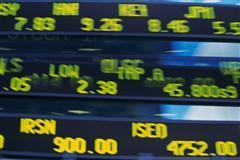 It has been a given that where commodities go, so goes emerging markets, however, that correlation seems to have broken down over the last few months. While commodities, both precious and base, have continued to rise, emerging markets have underperformed since November. What gives?
It has been a given that where commodities go, so goes emerging markets, however, that correlation seems to have broken down over the last few months. While commodities, both precious and base, have continued to rise, emerging markets have underperformed since November. What gives?
For several years the basic investment thesis is that emerging markets are economic juggernauts with an insatiable demand for the world's natural resources. Their factories devour every form of commodity and transform them into the world’s textiles, steel, clothes, cars, toys, electronics and scores of other exports.
But sometimes you can come up against too much of a good thing. That is what is happening to several of the larger emerging market countries such as China, Brazil and India. All three countries managed to avoid global recession. While we languished with high unemployment and negative growth, most emerging markets continued to grow and grow and grow. As a result, their domestic economies are beginning to overheat.
As they do, their inflation rates are starting to rise to uncomfortable levels with serious consequences for their economic future. China, for example, grew 9.8 percent in the fourth quarter while registering a 4.6 percent inflation rate. This week Brazil announced that consumer prices in their country rose to nearly 6 percent.
The governments of these countries have responded by raising interest rates and tightening credit conditions. The Brazilian Central Bank hiked interest rates by one half percent to 11.25 percent on Thursday and observers expect another hike very soon.
Local investors, drunk on ever-higher stock prices in 2010, are decidedly miffed that their central banks are taking away the punch bowl this year. China's stock market has declined over 15 percent since November. Brazil and India have also underperformed the U.S. markets as well.
In the meantime, commodity prices have largely ignored this new reality until very recently. Brazil's sudden rate hike, in combination with China's higher reading on domestic inflation this week, have finally shaken some of the euphoria out of the commodity market. We need this pullback (and I hope it continues) in order to square prices with reality in the emerging markets
I believe the declines in emerging stock markets are coming to an end. I would be a buyer of those markets on further pullbacks, because I still believe that regardless of any further short-term actions to slow growth, their economies will still outgrow more developed markets this year, next year, and the years after that. Commodities are also a great place to invest once this pullback is over. I advise that you wait for some price stability before adding to positions.
As for the U.S. stock markets, it appears that just about everyone is now in the "too extended, probable sell-off" camp that we have been waiting for over the last few weeks. The contrarian in me doesn't like to see the consensus come over to my point of view because the stock market often does what is most inconvenient to the greatest number of people.
Nonetheless, I would love to see a 3 to 5 percent correction before the end of the month. It would give me the opportunity to put more money to work. For specific recommendations, call or e-mail me.
Bill Schmick is an independent investor with Berkshire Money Management. (See "About" for more information.) None of the information presented in any of these articles is intended to be and should not be construed as an endorsement of BMM or a solicitation to become a client of BMM. The reader should not assume that any strategies, or specific investments discussed are employed, bought, sold or held by BMM. Direct your inquiries to Bill at 1-888-232-6072 (toll free) or e-mail him at wschmick@fairpoint.net. Visit www.afewdollarsmore.com for more of Bill's insights.
| Tags: commodities, emerging markets |
@theMarket: This Is the Year for Commodities
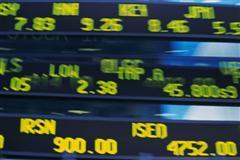 Last year, precious metals garnered the headlines and the attention of most investors. Gains in gold, silver, palladium and platinum left stocks in the dust. This year may well be the year for base metals, food and energy to outshine precious metals and the stock market overall.
Last year, precious metals garnered the headlines and the attention of most investors. Gains in gold, silver, palladium and platinum left stocks in the dust. This year may well be the year for base metals, food and energy to outshine precious metals and the stock market overall.
While gold and even silver's rise last year was more about concerns over currencies and inflation, the rise in basic materials is largely a play on the coming global economic recovery. The investment theme is simple: while world economies are beginning to grow, nations and companies rev up production in order to meet demand and therefore the demand for commodities increase proportionately. At the same time, new wealthier, middle-class consumers in developing countries, such as China and India, demand a better diet and now have the money to afford such delicacies as beef, pork, chicken as well as different grains and even bread and pastries.
This scenario is neither new nor original. The prices of aluminum, cooper, steel, lead, zinc and a host of other hard metals as well as wood and paper and other basic materials have been on the rise over the last few years simply because certain developing nations such as China have been demanding more of these commodities to both re-build the infrastructure of their countries and also export to developed nations such as the U.S. and Europe. Now that global economic growth is at hand, demand for these materials will continue to expand, and at an accelerated rate.
Some of these commodities, like rare-earth metals for example, have recently skyrocketed in price causing a mini-bubble in that sector. We can expect more of the same.
Back in September of last year, readers may recall my column "Wheat, Weather and the Grocery Shelves" in which I warned that food prices were heading much higher.
"The real increases in food prices are still waiting in the wings until the world's economies are on firmer footing. Once people can afford to spend again, prices are expected to move up quickly in commodities across the board."
Well, folks, that time has come. Wall Street analysts forecast that food prices could rise anywhere from 2.5 to 4 percent this year versus 1.5 percent in 2010. A variety of factors including weather, population growth, the rise of the emerging market consumer as well as global economic growth have lit a fire under commodities as mundane as sugar, corn and cotton.
Since June, corn prices are up 94 percent, soybeans have gained 51 percent and wheat is up over 80 percent. Just this week, the U.S. Agricultural Department reduced its estimates for global harvests of some important crops, as well as increased their demand forecasts for commodities overall. It seems a safe bet that when looking for new investments this year, commodity-producing companies and countries should be high on your list.
As for the markets overall, all three averages are grinding higher as the second week of January comes to a close. I still expect a pullback of sorts (risk of 3-4 percent) but that would simply be another opportunity to buy stocks, given that I think the stock market will provide rewards of 15-20 percent between now and August. Given that kind of risk/reward scenario, I am a buyer of equities on every dip.
Bill Schmick is an independent investor with Berkshire Money Management. (See "About" for more information.) None of the information presented in any of these articles is intended to be and should not be construed as an endorsement of BMM or a solicitation to become a client of BMM. The reader should not assume that any strategies, or specific investments discussed are employed, bought, sold or held by BMM. Direct your inquiries to Bill at 1-888-232-6072 (toll free) or e-mail him at wschmick@fairpoint.net. Visit www.afewdollarsmore.com for more of Bill's insights.
| Tags: metals, commodities |
@theMarket: Corrections Are Good for the Soul
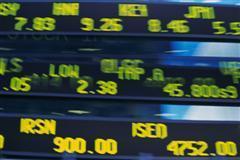 It was long overdue. For weeks, the stock market has registered overbought conditions and still it forged ahead. Investors had driven the averages back to yearly highs and only then did the rally run out of steam. Now it's time to step aside and watch.
It was long overdue. For weeks, the stock market has registered overbought conditions and still it forged ahead. Investors had driven the averages back to yearly highs and only then did the rally run out of steam. Now it's time to step aside and watch.
"Is this the start of something big or should I just stay put?" asked a retired client from Pittsfield who has recouped much of his 2008 loses over the last year.
"Stay put," I said, "because this pullback will be short and unless you are a day trader, too volatile to do more than add to existing positions."
I'm thinking we could see the stock markets drop as much as 5 percent, which from here isn't such a big deal. Take the S&P 500 Index, for example. This week it hit an intraday high of 1,227 (almost 10 points higher than its peak in April). A 5 percent decline from that level would put the average at 1,165, a mere 30 points down from here. That's not worth getting excited about.
As a rule of thumb, I believe that 5 percent to 10 percent corrections in the stock market are the "price of doing business" or the risk one must accept in equity investing. These kinds of corrections occur 2-3 times a year on average. And it is not just equities that are falling.
Commodities are also declining. As I look at the present spot price of gold, the precious metal is off over $40 an ounce while silver is down $1.50 an ounce and oil has plummeted over $3 a barrel — in just one day. Commodities tend to have extremely sharp, if short, corrections that tend to wilt most amateur investors' resolve to stay invested. It appears that once again those who have chased energy, precious metals and agricultural commodities are suffering big reversals this week. Rather than buy this weakness, they tend to sell in panic.
For those with bullish convictions, this pullback is a buying opportunity, not only in commodities but stocks in general. This coming week should provide further opportunities to establish new positions. Some of the areas I favor for additional investment are emerging markets, real estate such as REITs, commodities, commodity companies and selected technology.
As for the culprits that triggered the pullback, most of the negative events have something to do with governments. The on-again-off-again saga of the European debt crisis has reignited fresh worries over Ireland's struggle to rescue its financial system. It has led investors to re-examine Europe's financial situation in general.
At the same time, China is rumored to be hiking interest rates in an attempt to slow their economy. That would spell bad news for everyone since China has become the new locomotive of global growth. Over in Korea, where the G20 adjourned without agreeing on how to curb the growing currency war, left investors worried and disappointed over the fate of the U.S. dollar.
All of the above are serious issues but they have been with us throughout the year. China has raised rates before and emerging market growth is still quite healthy. The problems of Europe's smaller economies will continue to plague the Euro and the European Community for the next few years, but has not stopped their stock markets from enjoying substantial gains over the last six months.
The financial world is fully aware of every nuance of the currency debate. The dollar has declined since late August, sending stocks and commodities ever upward. None of this is new. Consider this pullback a healthy correction and that's all you need to know.
All these reasons for the sell-off will still be with us a month from now when the averages have regained their upward ascent, so don't put too much stock in today's headlines. They are fleeting at best. Focus instead on the opportunities this sell-off will present.
Bill Schmick is an independent investor with Berkshire Money Management. (See "About" for more information.) None of the information presented in any of these articles is intended to be and should not be construed as an endorsement of BMM or a solicitation to become a client of BMM. The reader should not assume that any strategies, or specific investments discussed are employed, bought, sold or held by BMM. Direct your inquiries to Bill at 1-888-232-6072 (toll free) or e-mail him at wschmick@fairpoint.net. Visit www.afewdollarsmore.com for more of Bill's insights.
| Tags: corrections, stocks, metals, China, commodities |

